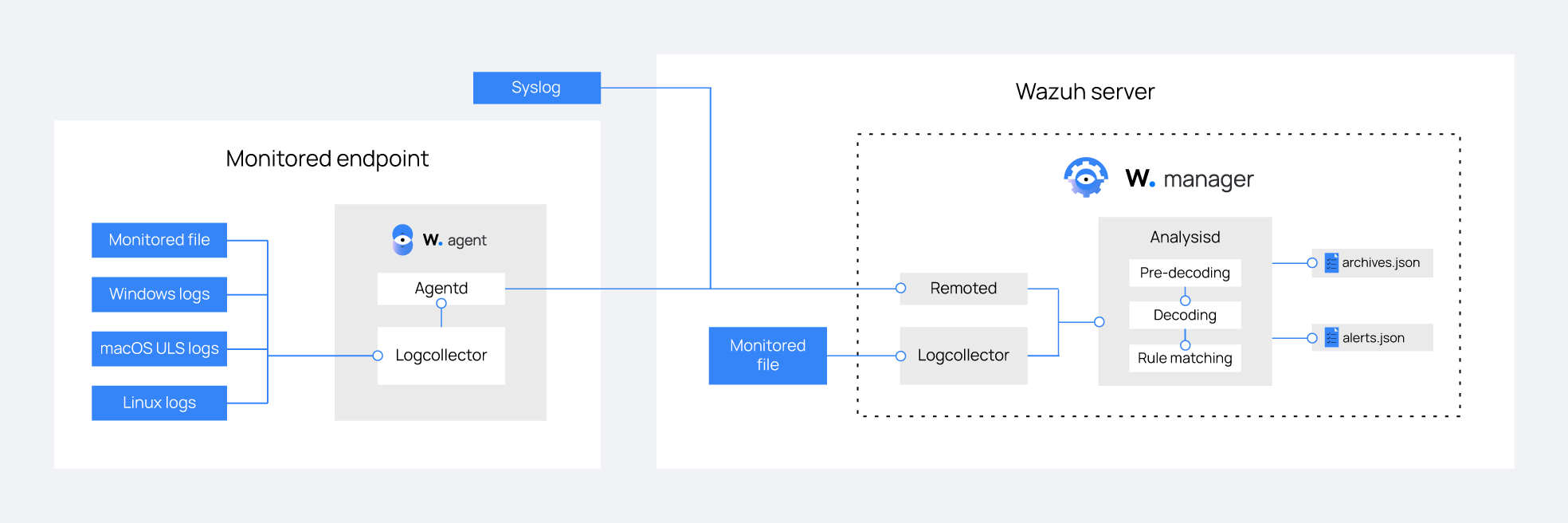How it works
Wazuh uses the Logcollector module to collect logs from monitored endpoints, applications, and network devices. The Wazuh server then analyzes the collected logs in real-time using decoders and rules. Wazuh extracts relevant information from the logs and maps them to appropriate fields using decoders. The Analysisd module in the Wazuh server evaluates the decoded logs against rules and records all alerts in /var/ossec/logs/alerts/alerts.log and /var/ossec/logs/alerts/alerts.json files.
In addition to alert logs, Wazuh stores all collected logs in dedicated archive log files, specifically /var/ossec/logs/archives/archives.log and /var/ossec/logs/archives/archives.json. These archive log files comprehensively capture all logs, including those that do not trigger any alerts. This feature ensures a comprehensive record of all system activities for future reference and analysis.
The Wazuh server also receives syslog messages from devices that do not support the installation of Wazuh agents, ensuring seamless integration and coverage across your entire network environment.
By default, the Wazuh server retains logs and does not delete them automatically. However, you can choose when to manually or automatically delete these logs according to your legal and regulatory requirements.
The image below illustrates the flow of log data collection and analysis in Wazuh.
